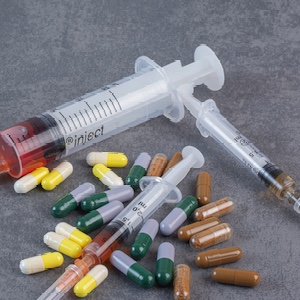Factors affecting the treatment outcome of injection based shorter MDR-TB regimen at a referral centre in India

All claims expressed in this article are solely those of the authors and do not necessarily represent those of their affiliated organizations, or those of the publisher, the editors and the reviewers. Any product that may be evaluated in this article or claim that may be made by its manufacturer is not guaranteed or endorsed by the publisher.
Accepted: 27 September 2022
Authors
Rifampicin-resistant/multidrug-resistant tuberculosis (RR/MDR-TB) is a significant burden on global tuberculosis (TB) prevention and eradication efforts. MDR-TB can be treated, but it is expensive, takes a long time (typically two years) and contains potentially toxic drugs. Under certain conditions, the WHO recommends standard regimens lasting 9 to 11 months rather than individual regimens lasting at least 18-20 months. The current study sought to identify factors associated with treatment outcomes in RR/MDR-TB patients receiving an injection-based regimen for 9-11 months. This ambispective (prospective and retrospective) observational study was conducted at a tertiary tuberculosis institute in New Delhi, India. Between February 2021 and March 2022, patients with RR/MDR-pulmonary TB who received an injection-based shorter regimen were enrolled. Factors related to treatment outcomes were investigated and compared in patients who had a successful outcome versus those who did not. A total of 55 patients were enrolled, with 50.91% being successful (cured/treatment completed) and 49.09% failing (including failure, lost to follow up, death, and regimen change). The following factors were significantly associated with the unsuccessful outcome, according to univariate analysis: BMI (<18.5 kg/m2), anaemia, previous anti-TB treatment, bilateral chest X-ray involvement, and far advanced disease on chest X-ray. BMI (<18.5 kg/m2), anaemia, and far advanced disease on chest X-ray were all significantly associated with mortality. Anaemia was associated with an unsuccessful outcome (p=0.049) and mortality (p=0.048) in the multiple logistic regression analysis. Early treatment initiation, improved nutrition and anaemia, and regular monitoring can all improve RR/MDR-TB patients’ outcomes and prognoses.
How to Cite

This work is licensed under a Creative Commons Attribution-NonCommercial 4.0 International License.






